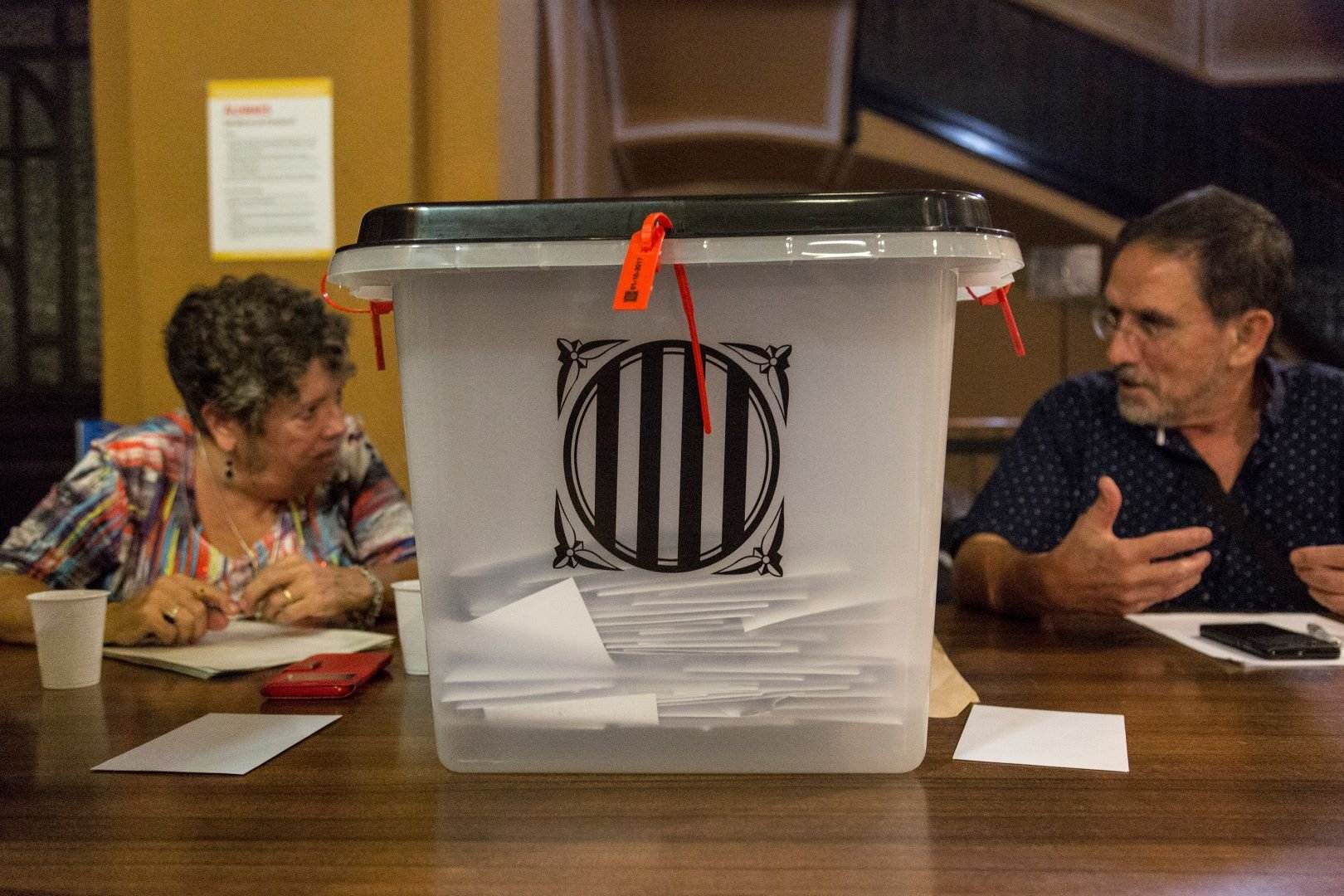The Catalan municipality of Òrrius is counting down the days until it holds a citizen consultation on a key question: whether it should put into effect Catalonia's unilateral declaration of independence (UDI) made on October 27th, 2017. This small town in the Maresme county, north of Barcelona, is finalizing details for the vote, to be held on October 1st, the sixth anniversary of the independence referendum, which is intended to "raise consciences". This is how it was described by the mayor, Xavier Masgrau, who in conversation with ElNacional.cat, asserted out that the independence movement is "very stagnant" and in such a context, it is necessary to give things "a shake-up" and once again bring to light the support for independence.
How will the Òrrius consultation be held?
This small-scale referendum will take place in the meeting room of the Òrrius municipal council, which on August 31st announced to residents that it was holding the vote. Masgrau makes it clear that "not a single euro cent from the municipal coffers" will be spent on holding the consultation, which will be organized by different associations in the town, such as Ò República. "This is a citizens' proposal, and as mayor I make the decree and announcement, but all of the infrastructure will be provided by the associations," he stressed. However, an electoral commission will be created to give validity to the consultative process, and will consist of townspeople with a certain profile, such as former mayors, who are still to be confirmed.
In this consultation there will be two ballot boxes put out: one for the people of the municipality, and the other for residents of other towns in Maresme county who want to take part. These ballot boxes will, almost unavoidably, be two of those used in the 2017 independence referendum. "It would not make sense to use any others", points out Masgrau, adding that "if they fill up" there will be no problem in readying, if necessary, cardboard ballot boxes.
Òrrius seeks to "raise consciences"
The mayor explains that its reference points are the independence consultations held in Arenys de Munt on September 13th, 2009, the unofficial 9-N referendum held across Catalonia on 9th November, 2014 and, of course, the 1-O referendum of 1st October 2017. Masgrau remembers that in 2009 no one could have imagined how far a consultation on independence could go, and in this regard, he admits that he does not know what "trajectory" the Òrrius referendum could have. "The signals are good, a lot of people have shown interest and even distant Maresme towns want to organize coach to come here," he says.
The poster announcing the consultation reads "in Òrrius we're doing it again", but Masgrau acknowledges that it is not a referendum as such and that it is neither binding nor is it "set down or agreed". The mayor regrets that the independence movement is currently immersed in a state of general frustration, at the same time as, politically, it is passing through a key time, in the context of the approaches of the PSOE to Carles Puigdemont in order to negotiate an investiture of Pedro Sánchez as Spanish prime minister.
For this reason, the aim of this consultation, he explains, is to "raise consciences" and give new impetus to the independence movement. "We want to bring it back to life because it's asleep, and that's why we're going to do our little bit," claims the town leader. He says that some people close to him have advised that it would be better not to go ahead with the consultation due to possible "repercussions" or because "it is not the time". At the same time, there are other people who have supported him and recognized his "courage". Masgrau notes that it might be courage or a lack of awareness, but he believes that "someone has to start it and then you have to see if there is any follow-up".
Òrrius will communicate the results to the Catalan administrations
With respect to the result of the consultation, the council is confident that "it will come out as a massive 'yes'", but points out that it is possible for people to be pro-independence, but at the same time "scared" to put the UDI into effect - something that was never done in October 2017, when the declaration was made - and for that reason, they might vote 'no'. As this is not a binding query, there is no minimum percentage stipulated for an option to be considered a winner, and by default, an option over 50% will be considered the winner. Nevertheless, Masgrau affirms that, once the result is known, Òrrius's local council will send it to all public administrations in Catalan territory to urge the politicians with responsibility to act. He acknowledges that it would be necessary for the leaders of the other municipalities to hold similar consultations in order to obtain "a broader view" of what the Catalan population thinks, but he notes that "from the humility of a small town" he cannot "aspire to more".

